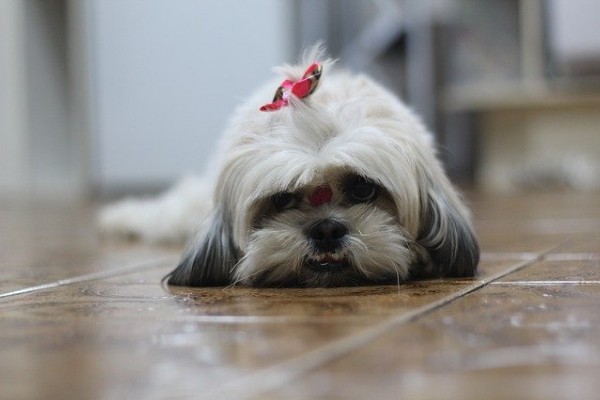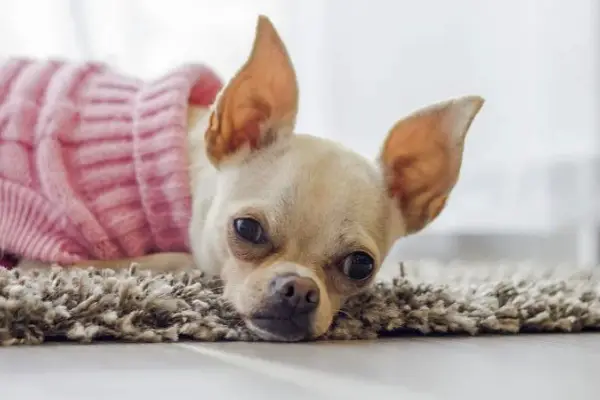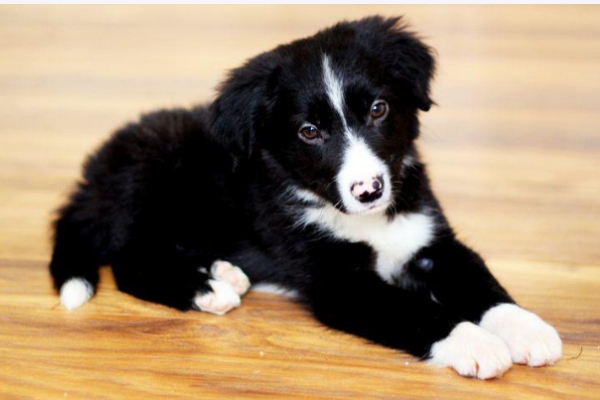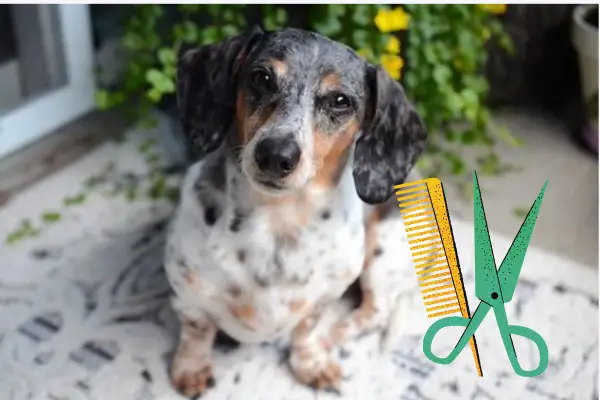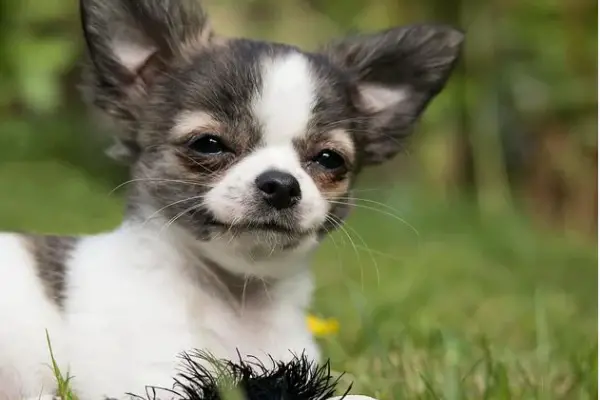Do Shih Tzus Shed: 11 Shedding Triggers & Controls
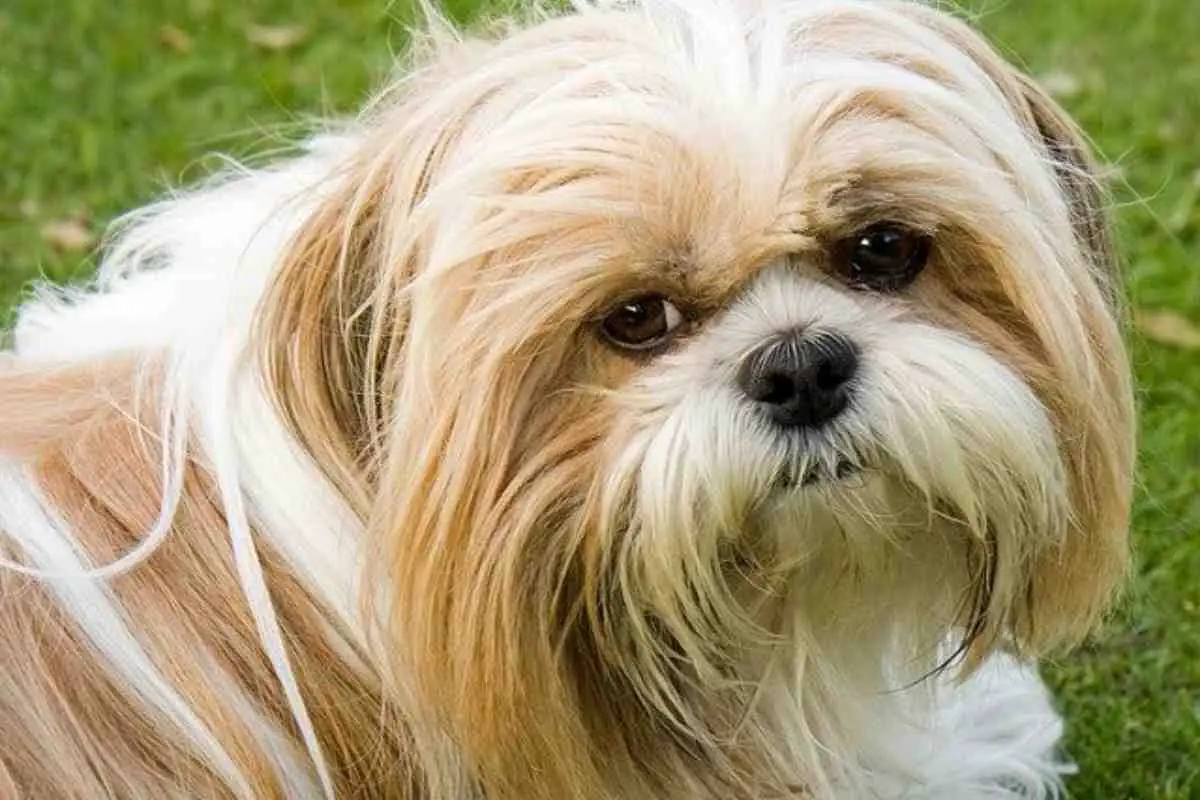
Lovers of small breeds of dogs who hate dog fur always ask do Shih Tzus shed, this is an interesting question, which we will be discussing in this article.
Do Shih Tzus shed is a controversial topic with lots of opinions, after my long research and talking to some Shih Tzus owners, I can now share my opinion.
In this post, we will outline and discuss some possible reasons why your Shih Tzu may shed excessively.
We will also outline and discuss some of the common ways to control or reduce excessive shedding in Shih Tzus. So stick around and read through.
Before we continue to reasons why Shih Tzus may shed excessively, let me quickly answer your question do Shih Tzus shed.
Do Shih Tzus shed
Shih Tzus do shed their hair from time to time, but their shedding rate is quite modest when compared to other dog breeds. Because they shed less, their hair is frequently suspended in their lengthy coat, leading to the misconception that they do not shed.
If you think or say Shih Tzus don’t shed, then you need to research and rethink.
If you actually want to know if Shih Tzus shed, then get a long comb with a lake-like tooth, brush your Shih Tzus first thing in the morning and see the number of hairs you get.
Well, because Shih Tzus produce little or no protein which we see as allergens we do say they are hypoallergenic dogs.
The rate or quantity of hairs a Shih Tzu shed depends on a number of factors which we will outline and discuss.
Why Shih Tzus shed excessively
Here are some common reasons why Shih Tzu may shed excessively than its normal shedding:
Side effects of medications in Shih Tzus
If you give your Shih Tzu medicine and it immediately starts shedding, the medication’s adverse effects could just contribute to the unneeded shedding.
Certain drugs, on the other hand, may cause your Shih Tzu to scratch and shed excessively due to irritation or scaling.
Some ailments may drive your Shih Tzu to brush herself excessively, leaving her fur bald.
Consult a veterinarian as soon as possible. If your dog is shedding excessively, you should have him checked out to rule out any health issues.
Check with your veterinarian to check whether your Shih Tzu’s excessive shedding is caused by any medications she’s taking.
Shih Tzus shed due to hormonal imbalance
Hypothyroidism is a hormonal condition that is frequently observed in Shih Tzus.
It affects the dog’s thyroid gland, resulting in a shortage of thyroxine, a hormone that regulates the dog’s metabolism.
Hair loss, a dull and thin coat, darkened patches of skin, tiredness, a lack of desire to exercise, and weight gain are all symptoms of this condition.
Shih Tzus shed due to parasite infestations and infections
One of the most common reasons for hair loss in Shih Tzus is bacteria pathogens, fungal infections, and infestation.
These health issues frequently create a great deal of discomfort and contribute to hormonal imbalances, which in turn cause hair loss.
Bacterial illnesses like salmonella can be contracted by eating raw foods like raw chicken.
Fungal infection might potentially cause the condition. If your Shih Tzu gets into touch with mold or other varieties of mold, this can happen.
Mold may develop on even your snacks and dry food, so always store them safely after use.
Keep in mind that Shih Tzus are inquisitive dogs that will smell out whatever they can discover in the corners of your home.
As a result, make sure your house and the areas your Shih Tzu frequents are free of mold and dampness.
Excessive shedding can occur after a stroll when the Shih Tzu inhales spores on the ground, on birds, and other objects.
Presence of dog allergies in your home
Allergies caused by food or environmental causes might itch a Shih Tzu’s skin, causing shedding.
As a result, your dog may scratch, lick, or bite himself, resulting in substantial hair loss.
Allergies in dogs can be caused by food, dust, medication, or insect bites.
As a result of an allergic response on their skin, dogs lose their hair when they come into touch with anything they are sensitive to.
This type of shedding does not occur on a regular basis; you will only notice it sometimes. Keep allergic triggers out of your Shih Tzu’s reach if you see them.
Make an appointment with your veterinarian if you’re worried about excessive shedding caused by allergies in your pup.
Seasonal variations
Because the rate or degree of shedding is determined by the season, the season is one of the primary causes of Shih Tzu shedding.
In comparison to the winter, there will be a lot more Shih Tzu hair droppings in the spring.
As a result, it’s acceptable to conclude that Shih Tzu’s shedding rate is affected by the season.
Shih Tzus shed their undercoat in the spring to avoid the heat, then lose their summer undercoat to develop thicker coats for the winter.
Shih Tzu sheds less in moderate weather, so keep your Shih Tzu’s temperature down throughout the spring.
If you don’t take care of your Shih Tzu throughout the hot season, you’ll be amazed at how much they shed.
Dietary imbalance in your Shih Tzu food
Due to a poor diet, Shih Tzus might lose a lot of hair. Food insecurity or wrong diet affects Shih Tzus in the same way that it affects humans.
Shih Tzus might have increased hair loss as a result of a nutritional imbalance. So, be careful what you give your pup.
If you observe any unusually heavy shedding just after changing your pup’s diet, whether it’s winter or spring, make an appointment with your veterinarian.
We are what we eat, and Shih Tzus are no exception. Shih Tzu will be healthier if they eat a healthy diet.
A well-balanced diet gives the minerals and vitamins required to maintain healthy skin, strong hair follicles, and minimal discharges.
Omega-3 fatty acids are known to promote healthy hair development, so including them in your Shih Tzu’s diet is always a good idea.
In the life of a Shih Tzu, a liquid diet is especially crucial, since dry skin can cause needless hair loss.
Too much stress-free and anxiety
Shih Tzus shed a lot because dogs with too much stress lose their hair, and the Shih Tzu is no different.
When the Shih Tzu is overworked, agitated, or anxious, hormonal shifts occur often, resulting in excessive or low secretions.
For the same reason, you’ll notice that your dog starts flinging hair more frequently when things get extremely fascinating.
If you discover hairs everywhere when you return home from a trip, you might believe your Shih Tzu is growing more hair, but this is only a symptom of stress.
As a result, worry, despair, and other negative emotions are always linked to stress-related dog hair loss.
Remember, Shih Tzus are a small breed that was selectively bred to be a human companion, this means they can’t withstand too much stress.
Some Shih Tzus stress factors
- Relocating to a new home.
- You’re always shifting things around in your house.
- Loneliness.
- Sounds that are very loud, such as gunshots.
- Having a suffocating atmosphere.
- Your daily routine is always changing.
- Changing your dog’s food on a regular basis.
- A new addition to the family.
- Another animal friend.
- There isn’t enough mental stimulation.
Sharp rise in body temperature
Because Shih Tzus are prone to heat exhaustion, any increase in body temperature will result in shedding.
Shih Tzus shed a lot, especially if they live in a hot climate. They shed more than those that live in a temperate climate.
When the temperature of a Shih Tzu rises, it usually results in shedding, which is usually minor.
As a result, you should not over-exert your Shih Tzu; a daily stroll of 10 minutes is sufficient. You’ll find hairs all over your house if you over-exercise them.
Always keep an eye on their temperature and prevent any activities that might cause it to increase.
A rise in body temperature can also result in difficulty breathing, because of the size and shape of the nose.
Read more: Do Shih Tzus Bark A lot: 13 Causes of Shih Tzus Barking & Solutions.
Bites from pests on the skin
Because fleas, mites, and lice are parasites that might attack, Shih Tzus may shed a lot. A single bite from these bugs can cause a lot of issues.
Shih Tzus are not usually comfortable with insect bites, and this bite might result in shedding, even if it is mild.
If your Shih Tzu becomes infected with a parasite, shedding might continue until the parasite is gone.
When Shih Tzus are attacked by bugs, they may get itchy and scratch themselves, causing bald areas.
Flea bites can cause a variety of health problems, one of which is excessive or infrequent shedding.
Because Shih Tzus are extremely sensitive to flea bites, keep your Shih Tzu away from fleas.
Always brush your Shih Tzu and check for pest while brushing since Shih Tzus have long hair that might hide pest.
Shedding caused by illnesses
You’ll notice that your Shih Tzu’s hair is falling out in clumps more than anything else if he or she is sick.
When your Shih Tzu sheds properly, the pattern changes. And you don’t see this kind of hair loss in clumps.
However, it’s vital to be aware of this, since you can treat your Shih Tzu right away to make him feel better.
A multitude of conditions can cause or worsen hair loss in Shih Tzus.
Here are a few of the most prevalent health issues in Shih Tzus that are linked to hair loss:
- Cancer
- Thyroid issues
- Liver conditions
- Skin diseases
- Kidney disease
- Bacterial infections
- Adrenal issues
Sudden changes in your Shih Tzus food
This type of shedding is prevalent in Shih Tzus whose owners like to try new foods rather than stick to what they know works.
Hair loss and shedding may result from a change in your Shih Tzu’s diet. This is more likely to occur if your Shih Tzu’s diet is deficient in nutrients.
If you alter your Shih Tzu’s diet and see a negative reaction in their fur, go return to the old food.
When you switch to a new dog food that is deficient in certain nutrients, your Shih Tzu will shed more to compensate for the absence of or excess nutrients.
Always talk to your veterinarian before changing your dog food.
Since you can’t stop shedding in Shih Tzus, but you can regulate and manage it, let’s look at some of the most frequent strategies to control shedding in Shih Tzus.
Read more: 14 Shih Tzu Anxiety Symptoms & 11 Anxiety Hacks.
How to control shedding in Shih Tzus
The following are some of the most frequent methods for controlling or reducing shedding in Shih Tzus:
Regular brushing sessions
Brushing your Shih Tzu’s hair is one of the most effective techniques to combat hair loss. It not only promotes blood flow to the skin’s surface, but it also helps to disperse natural fats on the skin.
It also means that loose hairs removed from the coat of your Shih Tzu during brush won’t end up on the floor or on the sofa.
Treats are always offered before and after brushing since Shih Tzus adores them. However, it is advised that you brush your Shih Tzu at least 3 times per week for an average of 11-15 minutes.
You may be required to brush your Shih Tzu at least 4 times every 7 days, depending on your schedule, but if you’re busy, you may brush once every 2 days to prevent tangles.
When considering why Shih Tzus shed so much, weekly brushing should be considered as a preventative approach.
Feed your Shih Tzu with high-quality dog food
Keep an eye on what your Shih Tzu consumes. A well-balanced diet supports good skin and reduces shedding in all dogs.
The meals of a Shih Tzu should be healthy and well-balanced. The quality of your Shih Tzu’s coat is largely determined by how well you feed it.
Feed your Shih Tzu a well-balanced diet to ensure that even the tiniest hair shedding on the inside is kept to a minimum.
Your Shih Tzu’s hair and skin will be as smooth and healthy as possible if she eats dog food high in Omega-3 fatty acids, oils, and minerals.
Before making any modifications to your Shih Tzu’s diet, consult your veterinarian.
Keep stale food and table scraps away from your Shih Tzu
In Shih Tzus, eating table scraps or stale food can induce gastrointestinal discomfort, which can contribute to excessive shedding.
Are you aware that allowing your Shih Tzu to consume table scraps on the floor might lead to a bacterial infection?
It is not a good idea to let your Shih Tzu eat on the ground; instead, feed your dog from a clean container.
Allowing your Shih Tzu to remove food from the table while you’re eating is not a good idea, and if they do, don’t let them.
The stomachs of Shih Tzus are delicate, and they may vomit if they consume stale food or table scraps, so try to keep them away from them.
Bathing your Shih Tzu once in a while
Bathing your Shih Tzu not only keeps your dog’s skin clean but also helps to reduce your Shih Tzu’s temperature, which is important for shedding.
Request the right shampoo for your Shih Tzu from your veterinarian, and follow the instructions carefully.
After washing, be sure to thoroughly dry your Shih Tzu’s skin; allowing your Shih Tzu to dry on its own will cause your Shih Tzu to develop skin problems.
Leaving your Shih Tzu’s skin moist is extremely harmful and may expose your Shih Tzu to parasite assaults.
Do you know that if your Shih Tzu is let to get wet for an extended length of time, it might stink? Therefore, be sure to air-dry your Shih Tzu after bathing them.
Read more: What Makes Shih Tzus Happy: 23 Shih Tzus happy Hacks.
Always keep your Shih Tzu hydrated
To reduce the danger of dry skin, your Shih Tzu should always have access to clean drinking water, which also helps to lower your Shih Tzu’s body temperature.
This is critical because dogs with little water intake have dry skin and hair, which leads to excessive shedding.
The chance of hazardous germs being swallowed is reduced if your dog’s water dish is kept clean and full.
Make sure your dog is only drinking clean water by keeping an eye on their water dishes.
Dehydration can lead to not just health problems, but also shedding.
As a result, make sure your dog has constant access to freshwater.
If you’re having difficulties getting your dog to drink enough water, try one of the following methods:
- Water should be added to their meal.
- If Ice cubes are available, give them some cubes.
- When they drink, give them a gift and congratulate them.
- Place their water bowl near their bed or a favorite hangout spot.
Inspect your home for parasite infestations
Fleas, ticks, and other parasites can not only irritate your Shih Tzu, but they will also degrade the quality of its coat.
Flea bites may cause severe hair loss as well as itchy, irritated skin in a Shih Tzu if not treated regularly and correctly.
Make an appointment with your veterinarian to discuss effective flea and tick control.
Worms or other parasites can infect your Shih Tzu in a variety of ways, including the following:
- Accidentally swallowing fleas can cause worms in Shih Tzus.
- Mosquitoes can transmit heartworms to dogs, so keep them away.
- By chasing a worm-infected rodent in your garden, your Shih Tzu might get worm-infected.
- By consuming worm larvae, Shih Tzus can become worm-infected.
- Shih Tzus have been observed eating worm larvae from neglected houseplants.
- Shih Tzu can get worms from your backyard’s overgrown and unkept flower beds.
Read more: 11 Most Common Shih Tzu Behavior Problems & Solutions.
Keep your Shih Tzu away from all forms of allergens
One of the most important things you can do to keep your Shih Tzu from shedding excessively is to eliminate any allergies.
Pollen, mold spores, dust mites, and dead skin cells are just a few kinds of allergens that can cause Shih Tzu allergies.
Keep an eye out for rashes or hair loss in your dog’s skin and hair that might indicate a food allergy.
Symptoms of an allergic reaction in a Shih Tzu
The following are some of the most typical signs that your Shih Tzu is allergic to certain foods or materials:
- The skin is being chewed constantly.
- Consistent sneezing
- Running nose.
- Frequently licking
- Typical diarrhea.
- Swelling of the face.
- Vomits repeatedly.
- Running eyes.
- Itchy ears.
Avoid constant changing of dog food
Switching food from one meal to another might cause unwanted shedding, so don’t be the one to initiate it.
Shih Tzus are quite sensitive to new foods and may vomit as a result, so choose one that works for you and stay with it.
If there is a need to switch foods, you, your veterinarian, and your Shih Tzu should all agree.
Even if your vet has given you permission to adjust your Shih Tzu’s food, pay close attention to how your Shih Tzu reacts.
Loss of appetite, fever, excessive water consumption, needless coughing, and unwillingness to eat are all factors to consider while modifying your diet.
Try adding supplements to your Shih Tzu meal
Natural fatty acids like omega-3 and omega-3 fatty acids, which are particularly helpful to Shih Tzus and help keep their skin and coat in top form, are commonly found in dietary supplements.
If you have Shih Tzus with skin issues, they will scratch and itch excessively, causing more hair to fall out of the follicles.
To help minimize shedding and excessive scratching, give your Shih Tzu a healthy vitamin and Omega-3 supplement.
Fish oil supplements that include these substances, in addition to high dietary quality, are particularly useful for hair removal.
Fish oil promotes healthy joints and bones in addition to offering skin and coat benefits. Always talk with your vet before using any supplement.
Read more: Shih Tzu Eating Problems: 13 Causes & How To Fix Them.
Schedule regular medical check-ups
When considering how to avoid Shih Tzu shedding, this is a crucial step to take because shedding can be caused by a variety of health issues.
Always consult your veterinarian about your Shih Tzu and have it examined on a regular basis.
There are several health risks associated with hair loss that you should be aware of:
- Kidney disease
- Liver conditions
- Cancer
- Thyroid issues
- Bacterial infections
- Side effects of medication
- Anxiety
- Adrenal issues
- Lice attack
- Excessive stress
- Fleas attack
- Ticks attack
Read more: 10 Common Causes Of Shih Tzu Shaking You Should Know.
Practice regular hygiene
Proper hygienic practices are one of the preventative measures to keep Shih Tzus from shedding excessively.
Use these hygiene practices to keep your Shih Tzu from shedding:
- Ensure that your dog has constant access to fresh water.
- It’s critical to refill your dog’s drinking water on a frequent basis.
- It’s vital that you keep your dog’s food bowls clean.
- Maintaining the cleanliness of your home’s floor.
- Allowing no access to your dog’s long-term waste.
- Don’t feed your dog stale food.
- Brushing your dog once a week is recommended.
- Set up a pest control system and keep rodents out of your house, among other things.
Provide your Shih Tzu with a stress-free environment
Your Shih Tzu will shed more hair than normal if it is stressed or anxious.
Getting a purebred Shih Tzu from reputable breeders can also be of help especially if you live in The US.
They may also over-groom themselves, producing bald patches or skin irritation.
Stress should be avoided at all times since it can lead to excessive shedding in your dogs.
Here are some stress-relieving methods for Shih Tzu:
- Reduce the amount of times your dog’s food is changed.
- Keep your dog a safe distance away from loud noises like gunshots.
- Stop deviating from your Shih Tzu’s regular schedule.
- Screaming at your Shih Tzu is not a smart idea.
- Stop tinkering with your dog’s eating schedule.
- Stop messing with the look of your house.
- Ensure that there are lots of toys on hand.
- Provide lots of mental stimulation which will assist your Shih Tzu.
I hope your question do Shih Tzus shed was answered and explained to your understanding!
Read more: Why Do Shih Tzus Sleep So Much: 10 Reasons To Note.

